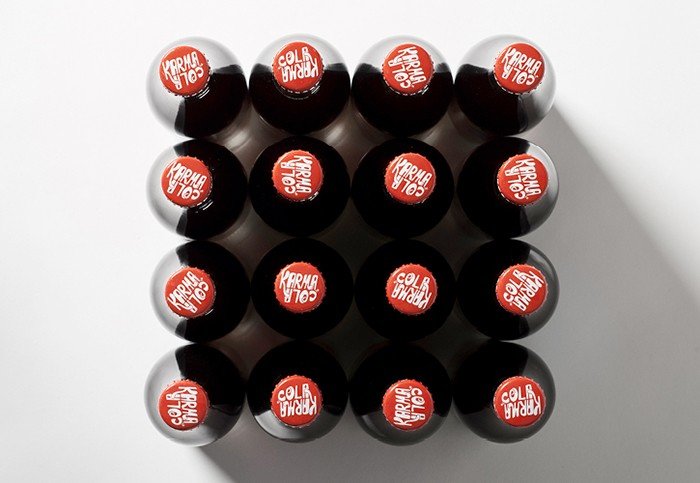
“I thought I’d tell you a joke. It’s one of my favourite jokes,” says Special Group‘s design creative director Heath Lowe, having just finished wrangling a turkey for the annual agency Thanksgiving lunch. “How many designers does it take to screw in a light bulb? The answer is ‘does it have to be a light bulb?’”
Lowe first heard this joke from one of his design mentors when he was working in Portland, Oregon, and he has since repeated it to countless clients because of how accurately it summarises what a design mindset adds to the creative process. And while there’s no doubt Special’s work is aesthetically appealling, that’s not the bit Lowe wants to focus on.
“A lot of people think design is about the object that comes out the end of a process: the bottle, the photograph or the film. But it’s not about the thing. It’s about the way you get there.”
Lowe says that it gives the creative “permission to question everything” and learn more about the company before taking a set course of action outlined in a brief.
“It opens us up to asking enough questions to find all the real opportunities for the client,” he says.
It’s an approach that’s working on a commercial level, and one that led to Special Group this week being declared the Australasian Branding and Design Agency of the Year by B&T magazine (it was a combined entry across its offices in Auckland and Sydney and Lowe says the Australian office also operates on the same philosophy).
The importance of design to the Special Group approach is obvious when you look at its performance in the Best Awards over the years. And it was recognised again this year, winning a gold, two silver and four bronze awards.

Despite the wins, and despite the consistently high quality design work it does, Special is still perceived to be an ad agency more than anything else.
“I’m always surprised when people say, ‘Oh, we didn’t really know that you guys did design,’” says Lowe.
“I find it surprising because we’ve got a slew of really great clients that we’ve worked with over the years, like, Karma Cola and Oob Ice Cream, that we’ve done the packaging and the branding for. It seems to me that everyone knows about them but I think, maybe, nobody knows that we did it.”

Lowe says he isn’t concerned by this disconnect between what outsiders think Special does and what the agency actually does, because clients are well aware of what the team is capable of.
“For us, it’s not so much about adding design as a discipline, it’s about design thinking being in our entire business… I think what we strive to be is just a creative company and that’s the way that we approach things,” he says.
“We don’t really approach things as an advertising agency, plus a design company plus PR, or something else … We just think of it as a totality of an experience for a customer. We pour the same amount of effort into all our campaigns, regardless of whether we’re making an app, doing a TVC or designing a retail shop.”

Lowe says agencies that specialise in certain disciplines will always struggle to deliver what clients actually need because of the limitations in what they can offer.
“In the future of our industry, I think creative companies that are well rounded and can deliver everything along the customer journey are the ones that are going to win,” he says.

Heath Lowe.
“It’s just not as effective for a client when one agency does brand strategy, then they stop and take a break and go brief another agency to do a TV campaign and then brief another agency or design company to do the packaging. So many gaps start to form in between all those different sessions.”
Of course, no single agency could ever do everything a client might need across every single channel.
But the point Lowe makes here ties back to why Special Group places such enormous emphasis on design thinking. So, if a client briefs them to screw in a light bulb, the team is always confident enough to come back and question whether or not it has to be a light bulb because they know that they have the skills to do something different if need be.
Because let’s face it, sometimes brands need an ad and sometimes they need a fancy pop-up sandwich shop. There’s always more than one way to sell some sliced bread.





